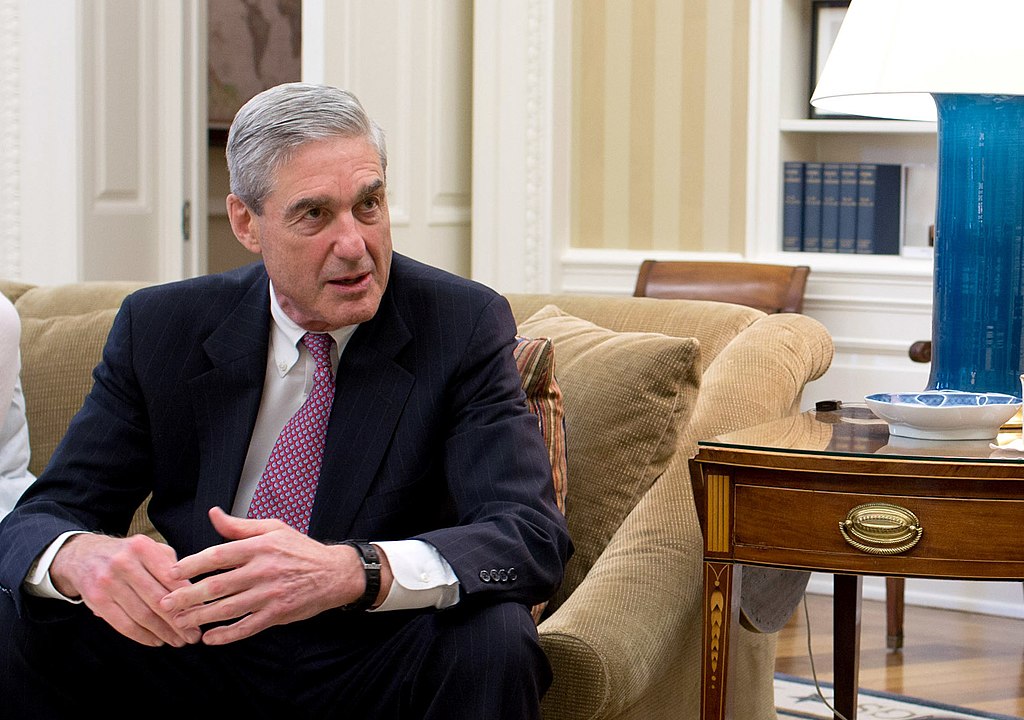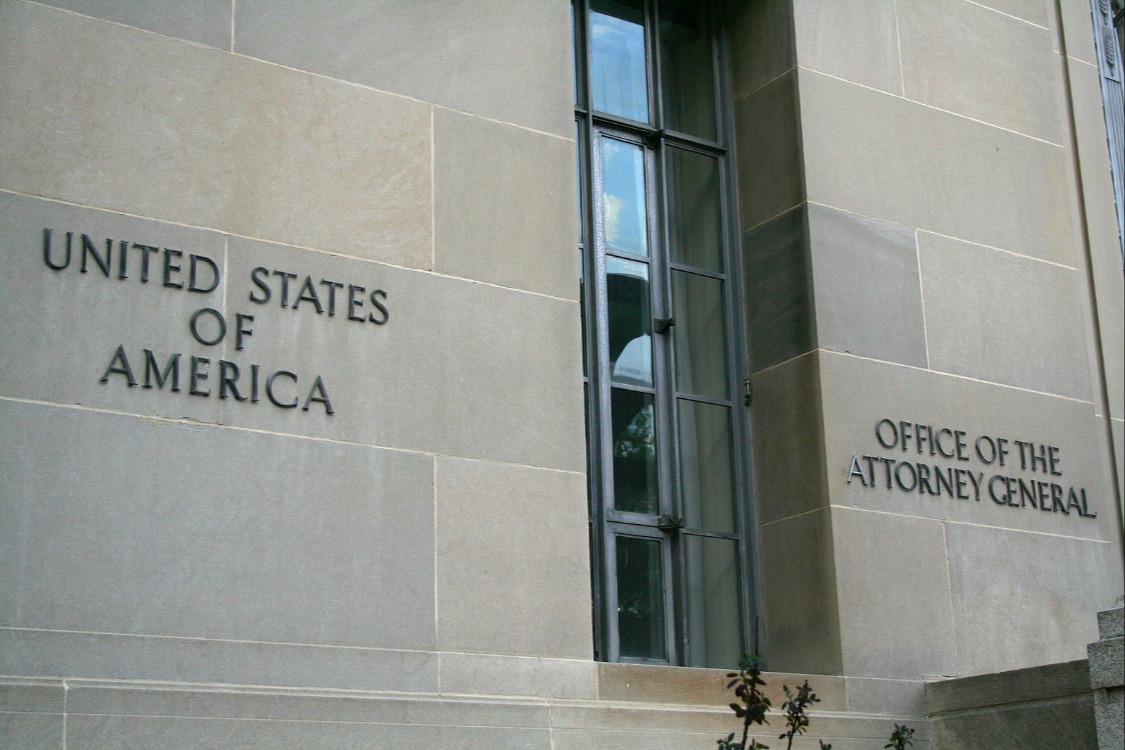Don't Expect a Starr-Like Report from Mueller
Benjamin Wittes and Quinta Jurecic have usefully reviewed the models that Special Counsel Robert Mueller might draw on deciding whether and how to tell the world what he learned in his investigation of the Russia matter. If Mueller follows the “orthodox path,” we will only “learn about the extent of ‘collusion’ or about possible obstructions of justice” to the extent Mueller issues indictments.

Published by The Lawfare Institute
in Cooperation With

Benjamin Wittes and Quinta Jurecic have usefully reviewed the models that Special Counsel Robert Mueller might draw on deciding whether and how to tell the world what he learned in his investigation of the Russia matter. If Mueller follows the “orthodox path,” we will only “learn about the extent of ‘collusion’ or about possible obstructions of justice” to the extent Mueller issues indictments. Mueller might also follow the model of Watergate Special Counsel Leon Jaworski by providing a road map of factual information with supporting documents but no legal conclusions, and then let Congress decide what to do. He might follow Ken Starr’s “particularly grandiose vision of the truth-reporting role” and issue “a detailed narrative” of events plus “lengthy evaluations of the evidence with reference as possibly impeachable offenses.” Or, if Mueller “is truth-commission oriented,” he might use “a special grand jury under 18 U.S.C. §3331 to issue a public report on Russian election interference.”
Ben and Quinta do not argue for any one of these approaches. Their aim, rather, is to show that the choice among these models “all boils down to how Mueller sees himself and his role.” In this regard, they appear to read the special counsel regulations that govern Mueller’s investigation to allow all of these possibilities. They maintain that the relevant regulation “says nothing about impeachment referrals one way or the other.” And they add (our emphasis) that “Mueller can do any kind of reporting that he wants,” as long as Rosenstein approves and the district court permits the release of grand jury material.
We read the special counsel regulations differently. While the matter is certainly not crystal clear, we think that the regulations in historical context almost certainly preclude some of the more aggressive models of disclosure, especially by the special counsel himself.
The special counsel regulations do not apply to Mueller’s investigation directly. Rather, Rosenstein appointed Mueller pursuant to his general authorities under 28 U.S.C. §§509, 510, and 515, and then pursuant to these authorities made “Sections 600.4 through 600.l0 of Title 28 … applicable to the Special Counsel.”
Section 600.8 of the regulations governs “Notification and reports by the Special Counsel.” Its subsection (c) provides: “Closing documentation. At the conclusion of the special counsel's work, he or she shall provide the Attorney General with a confidential report explaining the prosecution or declination decisions reached by the Special Counsel” (emphasis added). This provision was enacted as a reaction to the Starr report, designed precisely to reject Starr’s “grandiose vision of the truth-reporting role.” The section-by-section discussion of these regulations by its 1999 drafters in a final rule published to the Federal Register emphasized the “legitimate concern … expressed about the Final Report requirement of the Independent Counsel Act” under which Starr acted, and especially its under-emphasis on “legitimate privacy interests.” The drafters of the special counsel regulations noted that “federal prosecutors commonly document their decisions not to pursue a case, explaining the factual and legal reasons for the conclusions they have reached.” But such a document is a problem in independent counsel context, they noted, since the report under the now-expired independent counsel statute “typically has been made public, unlike the closing documentation of any other criminal investigation.” The drafters of the regulations under which Mueller now acts saw such a public report as a problem, since it “provides an incentive to over-investigate, in order to avoid potential public criticism for not having turned over every stone, and creates potential harm to individual privacy interests.”
As a result of these considerations, Section 600.8(c) imposed “a limited reporting requirement on all Special Counsels, in the form of a summary final report to the Attorney General” which should be handled as “a confidential document, as are internal documents relating to any federal criminal investigation.” Put another way, the only “report” by the special counsel that the regulations contemplate is a confidential document from Mueller to the attorney general, akin to the usual internal documentation related to a criminal investigation that does not result in indictment.
The drafters underscored the confidentiality of any special counsel report by explaining that Section 600.9—entitled “Notification and reports by the Attorney General—addresses the “interests of the public in being informed of and understanding the reasons for the actions of the Special Counsel.” Subsection (a) provides that the attorney general, who supervises the special counsel, “will notify the Chairman and Ranking Minority Member of the Judiciary Committees of each House of Congress, with an explanation of each action,” upon the appointment or removal of Special Counsel, and “[u]pon conclusion of the Special Counsel’s investigation.” And subsection (c) provides:
The Attorney General may determine that public release of these reports would be in the public interest, to the extent that release would comply with applicable legal restrictions. All other releases of information by any Department of Justice employee, including the Special Counsel and staff, concerning matters handled by Special Counsels shall be governed by the generally applicable Departmental guidelines concerning public comment with respect to any criminal investigation.
The phrase “these reports” in subsection (c) almost certainly refers back to the three types of notices, with explanation, to Congress contemplated by subsection (a). The explanations that accompanied the regulations explained that these “reports will be brief notifications, with an outline of the actions and the reasons for them.” Thus the only reports that the regulations contemplate can be made public are the relatively brief ones that the attorney general sends to Congress at the beginning and end of the investigation.
Section 609(c) goes on to add that “[a]ll other releases of information by … the Special Counsel and staff, concerning matters handled by Special Counsels shall be governed by the generally applicable Departmental guidelines concerning public comment with respect to any criminal investigation, and relevant law.” There are two ways to read this provision. One might read it as a limited catch-all provision that concerns everyday matters like press releases, pertinent document releases (like indictments), and the like, in the course of the investigation. But one might also read it to authorize Mueller or his supervisor, Acting Attorney General Rod Rosenstein, to use one of the more exotic publication devices available to the Justice Department in unusual circumstances, such as what Starr did, or convening a special grand jury under 18 U.S.C. §3331 in order to seek to issue a public report about the investigation.
This latter interpretation is an available reading of the text of Section 609(c), and may be what Ben and Quinta had in mind. But it is almost certainly not the right reading of the regulations in light of their context and structure. It makes little sense for the regulations to go out of their way to not authorize the special counsel to publish a report about the investigation and to contemplate only narrow and limited reporting to Congress and (perhaps) the public by the attorney general, and then have a catch-all that allows the special counsel or the attorney general to invoke the other devices to publish or disclose something much more ambitious. It is especially inappropriate to read the regulations to allow Mueller to issue a Starr-like report, since the only regulation that expressly contemplates a report by special counsel, Section 600.8, authorizes only a confidential one, and only to the attorney general. Note also that Section 600.9 is entitled “Notification and reports by the Attorney General,” and the only “reports” it expressly discusses are the ones to Congress that precede the catch-all sentence in subsection (c).
In sum, we think that the best reading of the special counsel regulations in their historical context rules out a Starr-like report to Congress that lays out hundreds of pages of factual allegations as well as legal analysis and conclusions. The drafters of the regulations criticized that approach and took steps to preclude it, and on the whole, the regulations achieve that goal. We thus disagree with Ben and Quinta when they write:
[T]he relevant regulations [do not] preclude Mueller from behaving as Starr did. As we read the regulations, rather, Mueller can do any kind of reporting that he wants, provided that Rosenstein—who, by the way, worked for the Starr investigation once upon a time—is comfortable with his activity and the district court approves the release of any grand jury material. In other words, if Mueller has a truth-commission view of his role and Rosenstein tolerates it, a capacious report or set of reports, either to Congress or to the public, is certainly a possibility. It is neither required nor forbidden under the rules in force today.
The regulations were designed to forbid a lengthy, truth-reporting document in order to protect privacy and to ensure that the Special Counsel did not have “an incentive to overinvestigate.”
If Mueller and Rosenstein take the regulations in their historical context seriously, they will adopt what Ben and Quinta describe as the “orthodox” model and let the indictments do most of the information-disclosure. Rosenstein could add to the indictments a relatively spare factual report to Congress (and maybe the public) at the end of the Mueller investigation, which can be seen as a version of the Jaworski model. Such a relatively modest approach would, we think, help legitimate whatever else Mueller does. It is vitally important that truth come out in the Russia investigation. On such a deeply contested issue, it is also vitally important that Rosenstein and Mueller disclose the truth in ways that are legally uncontroversial. As Rosenstein learned when he served on Starr’s prosecution team in the 1990s, an investigation can be tainted by a report that is too aggressive about what the investigation uncovered beyond indictments. We expect that Rosenstein will also keep in mind that the modest approach is most consistent with his letter supporting the dismissal of FBI director James Comey, which emphasized in great critical detail the many costs, to privacy and to Department traditions, that come from releasing to the public information on those investigated but not indicted.
Our conclusion that some combination of the orthodox model and the Jaworski model is appropriate under the special counsel regulations requires two important qualifications. First, the special counsel regulations do not contemplate the possibility of an impeachment referral to the House of Representatives—a surprising gap in light of their historical context. This may pose a special challenge if Mueller uncovers evidence of criminality or potentially impeachable offenses by the president, since the Justice Department believes that a sitting president cannot be indicted. Should Rosenstein think the Mueller probe warrants further investigation and possible impeachment by Congress, Section 609 probably has enough play in the joints for Rosenstein to include in his authorized final report to Congress factual information that might form the basis for impeachment, as long as he can secure judicial approval to disclose grand jury information consistent with Federal Rule of Criminal Procedure 6(e). This is essentially what Jaworski did. As best we can tell, nothing in Justice Department policies or regulations precludes this course of action.
The second qualification concerns the nature of Mueller’s investigation. As Marty Lederman has emphasized, the Mueller investigation started primarily as a counterintelligence investigation. James Comey described the investigation as “part of our counterintelligence mission” when he first publicly announced it on March 20, 2017. And when Rosenstein appointed Mueller he authorized him to “conduct the investigation confirmed by then-FBI Director James B. Comey in testimony before the House Permanent Select Committee on Intelligence on March 20, 2017.” As Comey noted in his March 2017 testimony, “As with any counterintelligence investigation, this will also include an assessment of whether any crimes were committed.” And that is what Mueller has been doing, as we have seen with the indictments of Manafort, Flynn, the Russians, etc. But Mueller’s investigation remains at least in large part a counterintelligence investigation. And that focus—on uncovering Russia’s efforts to interfere in the 2016 election, on the links and possible coordination between the Trump campaign and Russia, and (possibly) on Russia’s ongoing improper influences on the U.S. government—surely informs how Mueller is proceeding and what he and Rosenstein will say at the end of the investigation, and to whom.
We do not know what the normal reporting protocols are when the Justice Department and FBI conclude a counterintelligence investigation. We assume that beyond whatever intra-Executive coordination is needed to pursue criminal prosecutions and to enable the pertinent intelligence agencies to respond going forward, the Justice Department typically does some form of reporting on counterintelligence matters to the congressional intelligence committees. Such reporting to the intelligence committees is not contemplated by the special counsel regulations. Rosenstein was careful in his order authorizing Mueller to say only that the pertinent Sections of the special counsel regulations, which contemplate criminal matters, “are applicable to the Special Counsel.” But Rosenstein did not say that these special counsel regulations governed his options with respect to counterintelligence matters that the regulations do not contemplate. It appears that the more general authorization for the Mueller investigation (28 U.S.C. §§509, 510, and 515) would permit Rosenstein to report Mueller’s counterintelligence findings in whatever manner the justice Department typically deploys. Especially given the subject matter, we do not expect that such reports would be made public, beyond whatever was disclosed to Congress pursuant to the orthodox and Jaworski models described above.






